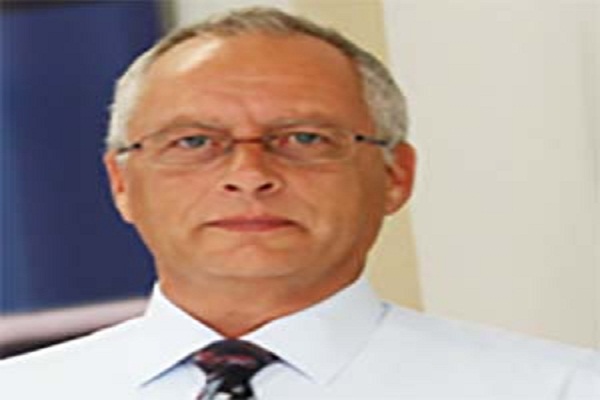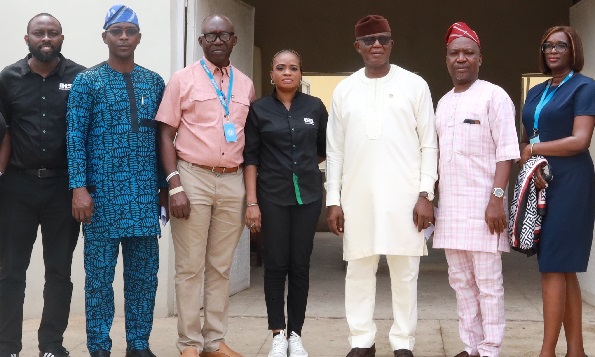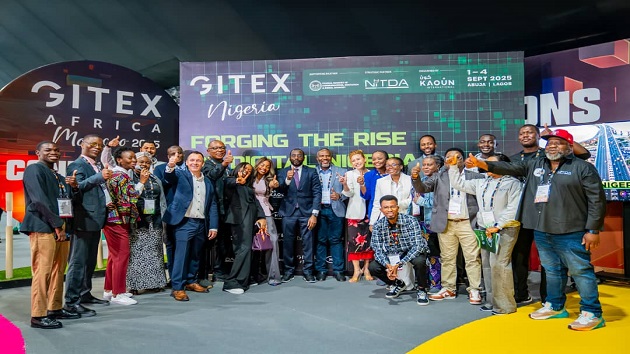News
The role of Human Capital Management in the new world of work

By Ronnie Toerien, Oracle HCM Sales Development & Strategy Leader – Africa
The world of work has been changing for some time, particularly over the last decade as emerging technologies equipped enterprises with the tools to operate with greater efficiency, innovate and explore a new potential. However, unprecedented events in 2020, have accelerated this transformation at an unimaginable pace.
With mandates to work from home if possible, the disruption of traditional business models is being driven by pure necessity. Like other contemporary, cloud-based business systems, Human Capital Management (HCM) has a vital role to play in ensuring business continuity, and resilience, as we march into the new world of work.
First and foremost, cloud-based HCM is essential to provide continued access to and support for remote workers, and at the same time safeguard the safety and health of employees. In the case of the latter, one product example is Oracle’s Workforce Health and Safety solution, currently free to all Oracle HCM Cloud customers. A business’s workforce is its greatest asset and should remain its greatest concern. Especially now. With employees scattered, the data collected, and analytics generated, by next-generation HCM solutions become crucial to combat absenteeism, identify at-risk individual employees and formulate a succession planning strategy across an entire organisation.
Crises, and the manner in which they are handled internally, can have a major impact on talent retention and acquisition, which will have a knock-on effect for business delivery. Reassurance through empathetic communication is essential. Empowering employees with information about the company’s strategy during such periods, as well as providing open channels for two-way conversation, gives people a sense of belonging to an organisation that is looking after and listening to them.
Going hand in hand is the need to help grow employees. Learning and development are often affected when enterprises embark on crisis cost-cutting, but the current climate is the perfect opportunity for HR to equip staff for new roles, or take advantage of employee skills and use them in new ways (possibly gig economy opportunities) that support the organisation, and the individual’s own professional growth.
It is important to note that the new world of work is under a microscope. Business success is no longer solely reflected in revenue. Public perception can have a powerful impact on customer behaviour, as it spotlights caring organisations and their opposite: those enterprises taking advantage of a situation and their staff. Cloud-based HCM applications help make work inherently more human-focused.
The new world of work is also notable for its drastically altered business processes. Older ways of working are often proving too inflexible to overcome current challenges. Cloud HCM plays its part in breaking down rigid division, not only between departments but data sets as well. As a powerful integration tool, it can bring together information and related components that do not naturally connect. For example, analytical tools can be combined with a combination of absentee data and workforce plans to model scenarios and combat skill gaps in reality. Such is the case with newly available Oracle Analytics for Fusion HCM, which seamlessly draws together and uses cross-functional data.
Cloud HCM’s’ removal of barriers applies to people too. The future of work is about connection, and contemporary applications equip employees to work more diversely within an organisation, collaborating with colleagues across the whole company ecosystem. Hierarchies and silos have given way to a flattened organisational structure of diverse networks working towards a single goal, opening the door to innovation and greater operational agility.
The foundation of a lasting, successful business process change is a culture shift. The latest HCM tools break down resistance to new systems, especially now as workers engage with the modules regularly from their remote work location. HCM is ushering in acceptance of a whole new way of working, with the likes of voice-commanded digital assistants proving their time-saving value, and other benefits, to users.
The new world of work is unquestionably one of co-existence between humans and autonomous systems, underpinned by the likes of machine learning and robotics. Just as traditional HR helped to streamline an employee’s entrance into an organisation, maximise their contribution and bolster their employability, cloud HCM is fulfilling the same function. This, while bringing together man and machine, which is key to business success in the future of work.
News
OOUTH Commends IHS Nigeria, UNICEF for Life-Saving Oxygen Plant Donation

IHS Nigeria, part of the IHS Holding Limited (NYSE: IHS) (“IHS Towers”) group, one of the largest independent owners, operators, and developers of shared communications infrastructure in the world by tower count, recently visited the Olabisi Onabanjo University Teaching Hospital (OOUTH), Sagamu, to evaluate the operational status and impact of the oxygen plant donated by IHS Nigeria in collaboration with United Nations Children’s Fund (UNICEF) and the Canadian Government in 2023 as part of a collaborative health infrastructure intervention initiative.

The oxygen plant which was donated as part of IHS Nigeria’s commitment to improving Nigeria’s healthcare system through sustainable, impactful initiatives is designed to serve not only the teaching hospital, but also other health facilities in the region.
The oxygen plant is equipped with 50 units of 6-cubic-meter cylinders and 150 units of 3 cubic meter cylinders that currently supplies critical departments across the teaching hospital including Anesthesia, the ICU, Pediatrics, Accident and Emergency, Labour, and Surgery departments. The hospital management acknowledged the difference the plant has made in ensuring prompt availability of oxygen even for patients who are unable to pay and in improving the medical outcomes for many patients who need oxygen as part of their management.
Accompanying the team on the visit was the Honorable Commissioner for Environment in Ogun State, Ola Oresanya, who was invited to witness the outcome of the partnership and its alignment with the state’s public health and environmental objectives.
He lauded the initiative for its timeliness and noted that the impact of the donation could not be easily quantified in terms of its relevance to healthcare delivery and its sustainable energy and environmental management which supports the state government’s vision for a healthier and more resilient Ogun State.
Titilope Oguntuga, Director, Sustainability, IHS Nigeria, commented “As a responsible organization, we find ways to impact communities in the markets we serve. In demonstrating our commitment, we also ensure that our investments are running smoothly, which is why we visited OOUTH. This is the first institution we donated an oxygen plant to and is also the first we are visiting to assess its impact and operational status.
“We are humbled by the acknowledgment and testimonies from the OOUTH management. This increases our resolve to continue to create meaningful and sustainable impact through infrastructure that saves lives and strengthens communities.”
Celine Lafoucriere, Chief of Field Office, UNICEF, commented “We cannot overemphasise the power of partnerships in achieving health equity. This is what building resilience in health systems entails: combining expertise, funding, and a shared goal.”
Dr. Oluseun Adeko, Chairman, Medical Advisory Committee (representing the Chief Medical Director of OOUTH), commented “This oxygen plant has not only enhanced our ability to manage emergencies and respiratory cases, but it has also saved lives beyond our hospital, as it serves as a source of oxygen for other hospitals. We deeply appreciate IHS Nigeria and UNICEF for their foresight and generosity.”
News
DG NITDA Urges Foreign Investors to Tap into Nigeria’s Digital Future

In a spirited and visionary appeal, the Director General of the National Information Technology Development Agency (NITDA), Kashifu Inuwa CCIE, has issued a compelling invitation to global investors to explore Nigeria’s burgeoning digital economy, describing it as a land of opportunity powered by a youthful, tech-savvy, and highly innovative population.

The DG made this known when he engaged with global key players in the IT sector, including startups and investors during a GITEX Breakfast meeting at the GITEX Africa 2025 which is currently being held in Marrakech, Morocco.
Speaking ahead of GITEX Nigeria 2025, a major technology and investment conference set to take place from September 1 to 4 in Abuja and Lagos, Inuwa painted a vibrant picture of Nigeria’s digital landscape where according to him, innovation meets opportunity, and where government commitment aligns with grassroots entrepreneurial drive.
“Nigeria is a country with a large, youthful, innovative, creative, and highly competent workforce, where startups and scale-ups can continuously thrive, and where entrepreneurial spirit and technological advancement shape and create the landscape,” he stated.
He emphasised that Nigeria, with over 70% of its population under the age of 25, holds one of the youngest populations globally, positioning it as a talent hub for the Fourth Industrial Revolution.
The NITDA boss further noted that the government’s vision aims to elevate Nigeria into an emerging global digital economy through comprehensive reforms, infrastructure investment, and an aggressive digital literacy agenda.
“The president is also bullish about building our digital infrastructure and wants to establish our digital sovereignty, providing a platform for our citizens to develop digital offerings that Nigeria can take to the world,” he said.
While outlining initiatives aimed at embedding digital skills across the formal education system and enhancing national digital capabilities, he noted that the nation is not just teaching young people to consume technology but empowering them to create it.
Recognising the importance of digital sovereignty, Inuwa added “We are also promoting cloud adoption because you cannot succeed today with on-prem infrastructure, but you need to be on the cloud, and you need to have agility.”
Underscoring the significance of Nigeria and Africa’s digital native population and boundless talent, Inuwa mentioned that the continent should not just participate in the Fourth Industrial Revolution but should lead.
He disclosed that the GITEX Nigeria conference is set to be a milestone moment with Abuja which is the nation’s policy capital, hosting discussions on investor-friendly reforms and policy frameworks, and Lagos, the home to Africa’s most vibrant startup ecosystem, showcasing the energy, innovation, and investment potentials.
“We have the talent and we have the digital native population and we are nurturing an innovative and entrepreneurial ecosystem because we need to challenge the status quo, we need to use technology to disrupt the way we do things and we need to create a collective intelligence where people work with technology to make lives better and that is the Nigeria we are creating,” he concluded.
In his remark, the sales director of ZOHO, Mr Vijayaragavan Venugopal stated that Zoho has been predominantly focusing on the African market for the last 7 years and has witnessed tremendous growth in the African market, with Nigeria leading at the forefront.
“We are happy that we are going to be there in Nigeria along with GITEX and the event will not only empower the Nigeria market but the whole of Africa and it is going to be an opportunity to gather amongst each other, talk about tech, and grow together in the entire African market,” he said.
While giving her remark, the CEO of Alami Capital, Olu Olufemi White, highlighted the importance of investing in startups that center people in their solutions and challenged traditional investment approaches that ignore the human element.
Expressing her commitment to transforming communities through thoughtful and strategic innovation, she emphasised the need for impactful, innovative, and scalable ventures while however, noting that technology can only thrive with reliable energy and sustainable finance.
Appealing to everyone for active participation at the forthcoming GITEX Nigeria while making reference to the market activity from Google, Cisco, and Flutterwave, White said “You can start to see what happens when you support us. Please don’t wait till we become big and the rest of the world begins to tell our stories, we want you to tell it for us and we want to walk and work hand in hand with you to build the nation of our dreams.”
News
EFCC Assures CBEX Investors of Fund Recovery Amid Investigation

Economic and Financial Crimes Commission (EFCC) has reassured investors affected by the collapse of the Crypto Bridge Exchange (CBEX) a digital trading platform that their funds will be recovered, though the process may take time.

Speaking on Channels TV’s Morning Brief on April 16, EFCC spokesperson Dele Oyewale emphasized the agency’s proactive measures in profiling CBEX and alerting Nigerians about potential Ponzi schemes prior to its crash.
Oyewale highlighted the EFCC’s ongoing collaboration with Interpol and international development agencies to bring the perpetrators to justice.
He assured the public that the commission remains committed to safeguarding investors and ensuring accountability.
The EFCC had previously listed 58 Ponzi scheme companies in March, warning Nigerians to exercise caution with unregistered investment platforms.
Despite the challenges, Oyewale reiterated the commission’s dedication to recovering funds and preventing future occurrences.
This development underscores the importance of vigilance and due diligence in financial investments, as the EFCC continues its efforts to protect Nigerians from fraudulent schemes.

 General News3 days ago
General News3 days agoWorld Bank Announces $800m Support for Nigeria’s CCT Initiative

 E-Financial3 days ago
E-Financial3 days agoFour Red Flags Nigerians Ignored until CBEX Crashed- DUBAWA

 Telecom2 days ago
Telecom2 days agoBanks, Telcos Mull New Billing Plans for USSD Airtime Payments
- General News3 days ago
MIT MBA Students Explore Digital Innovation at MTN Nigeria

 Telecom3 days ago
Telecom3 days agoHow Starlink Took over Africa’s Largest Internet Market

 General News3 days ago
General News3 days agoNITDA, SecDojo Forge Partnership to Strengthen Nigeria’s Cybersecurity Resilience

 E-Business2 days ago
E-Business2 days agoNIPOST in Intensive Care, Needs Reforms Need to – Kekemeke

 Telecom3 days ago
Telecom3 days agoMTN Champs Lagos Continental Relays: A Celebration of Sportsmanship and Fun
















